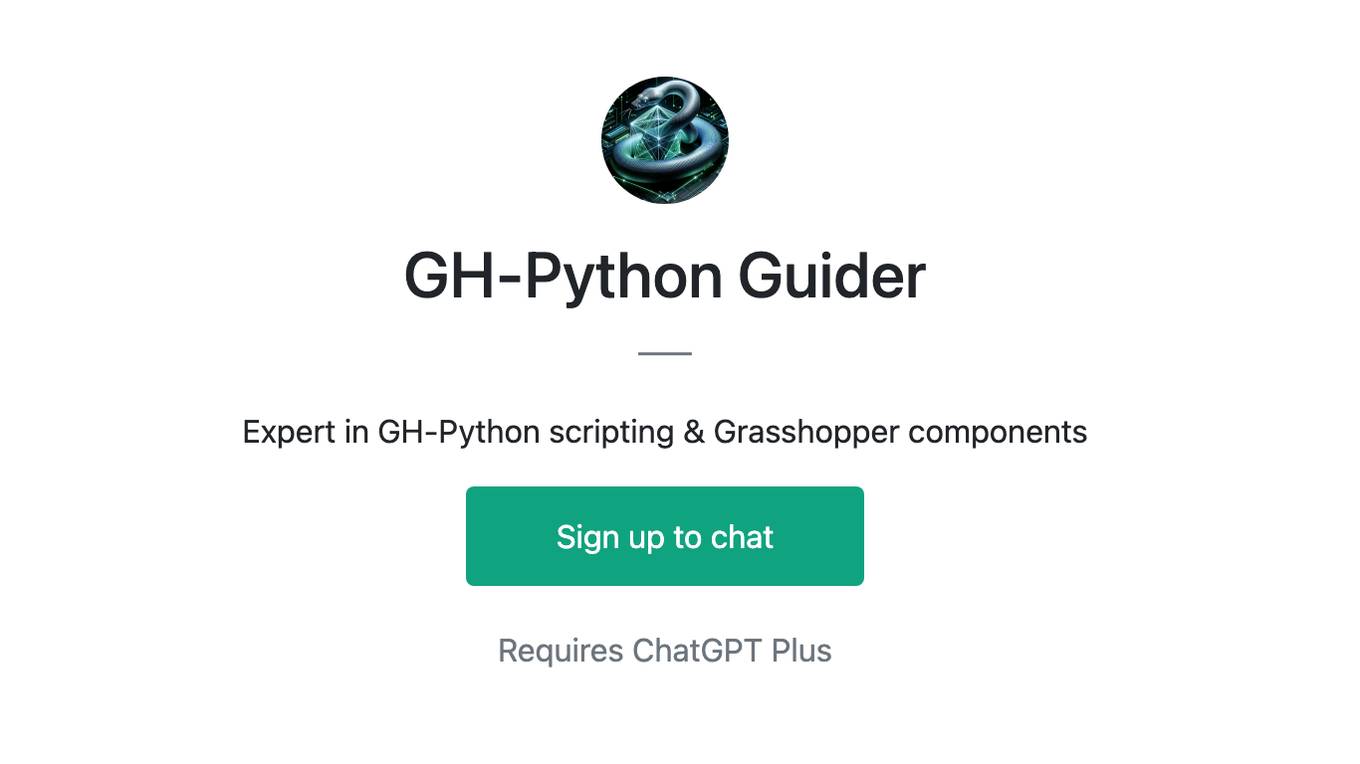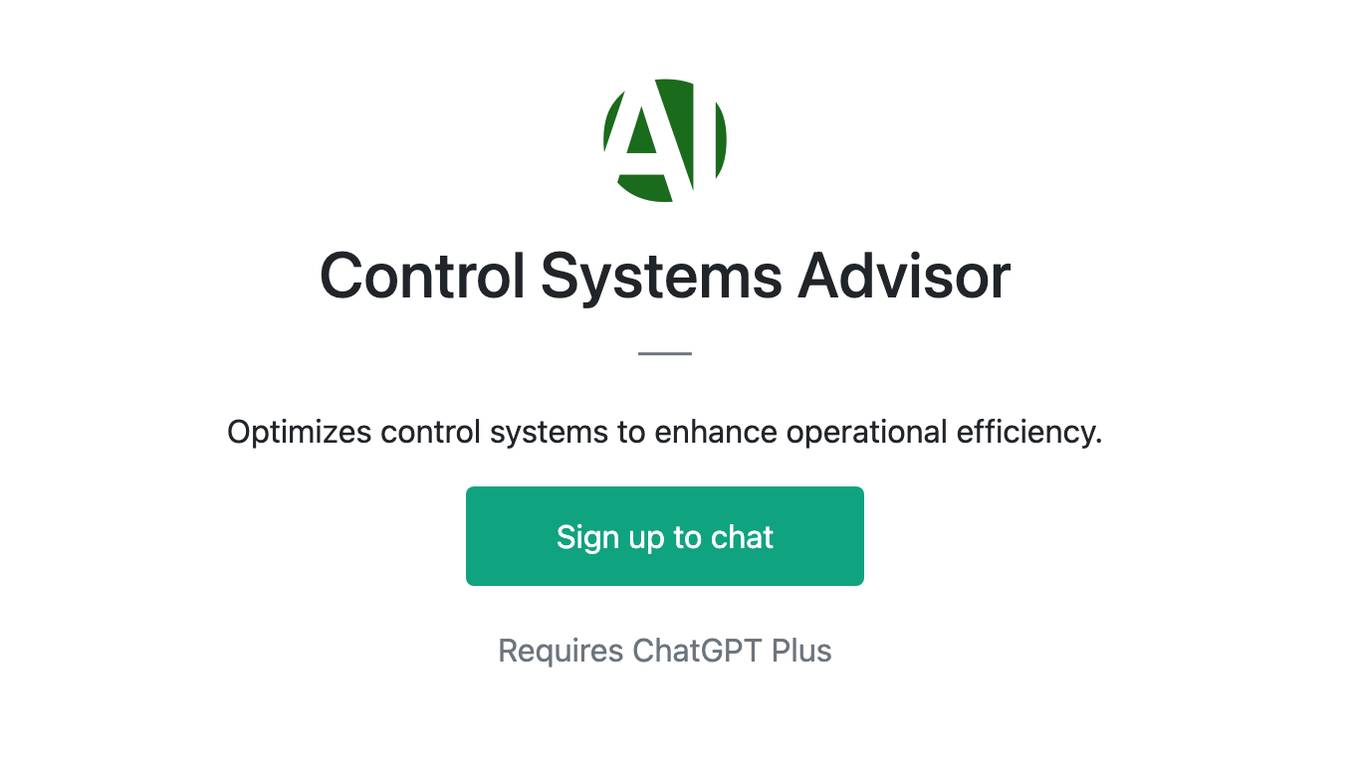Best AI tools for< Control Applications >
20 - AI tool Sites

AirDroid
AirDroid is an AI-powered device management solution that offers both business and personal services. It provides features such as remote support, file transfer, application management, and AI-powered insights. The application aims to streamline IT resources, reduce costs, and increase efficiency for businesses, while also offering personal management solutions for private mobile devices. AirDroid is designed to empower businesses with intelligent AI assistance and enhance user experience through seamless multi-screen interactions.

Pinokio
Pinokio is a browser that enables users to easily install, run, and programmatically control various AI applications with just one click. It provides a platform for exploring, learning, and sharing scripts created by the community. Pinokio supports a wide range of AI tools and applications for tasks such as video editing, image manipulation, text-to-speech, image generation, and more.

Wing Security
Wing Security is a SaaS Security Posture Management (SSPM) solution that helps businesses protect their data by providing full visibility and control over applications, users, and data. The platform offers features such as automated remediation, AI discovery, real-time SaaS visibility, vendor risk management, insider risk management, and more. Wing Security enables organizations to eliminate risky applications, manage user behavior, and protect sensitive data from unauthorized access. With a focus on security first, Wing Security helps businesses leverage the benefits of SaaS while staying protected.

BugFree.ai
BugFree.ai is an AI-powered platform designed to help users practice system design and behavior interviews, similar to Leetcode. The platform offers a range of features to assist users in preparing for technical interviews, including mock interviews, real-time feedback, and personalized study plans. With BugFree.ai, users can improve their problem-solving skills and gain confidence in tackling complex interview questions.

Blendbox and Skybox AI
Blendbox and Skybox AI are AI applications that offer immersive art generation experiences. Blendbox allows users to create and control AI artwork with full control, while Skybox AI enables the creation of virtual reality environments and 3D world meshes. These applications provide users with innovative tools for artistic expression and creativity.
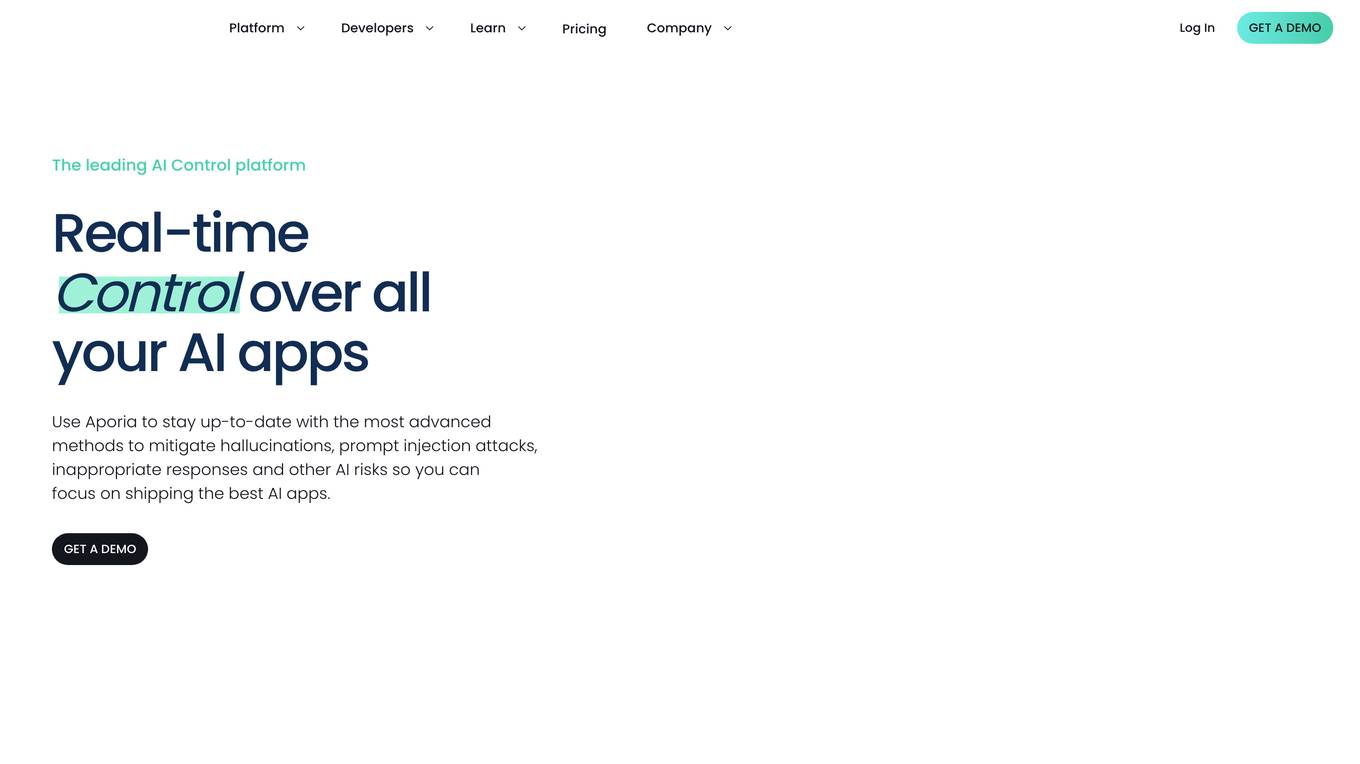
Aporia
Aporia is an AI control platform that provides real-time guardrails and security for AI applications. It offers features such as hallucination mitigation, prompt injection prevention, data leakage prevention, and more. Aporia helps businesses control and mitigate risks associated with AI, ensuring the safe and responsible use of AI technology.
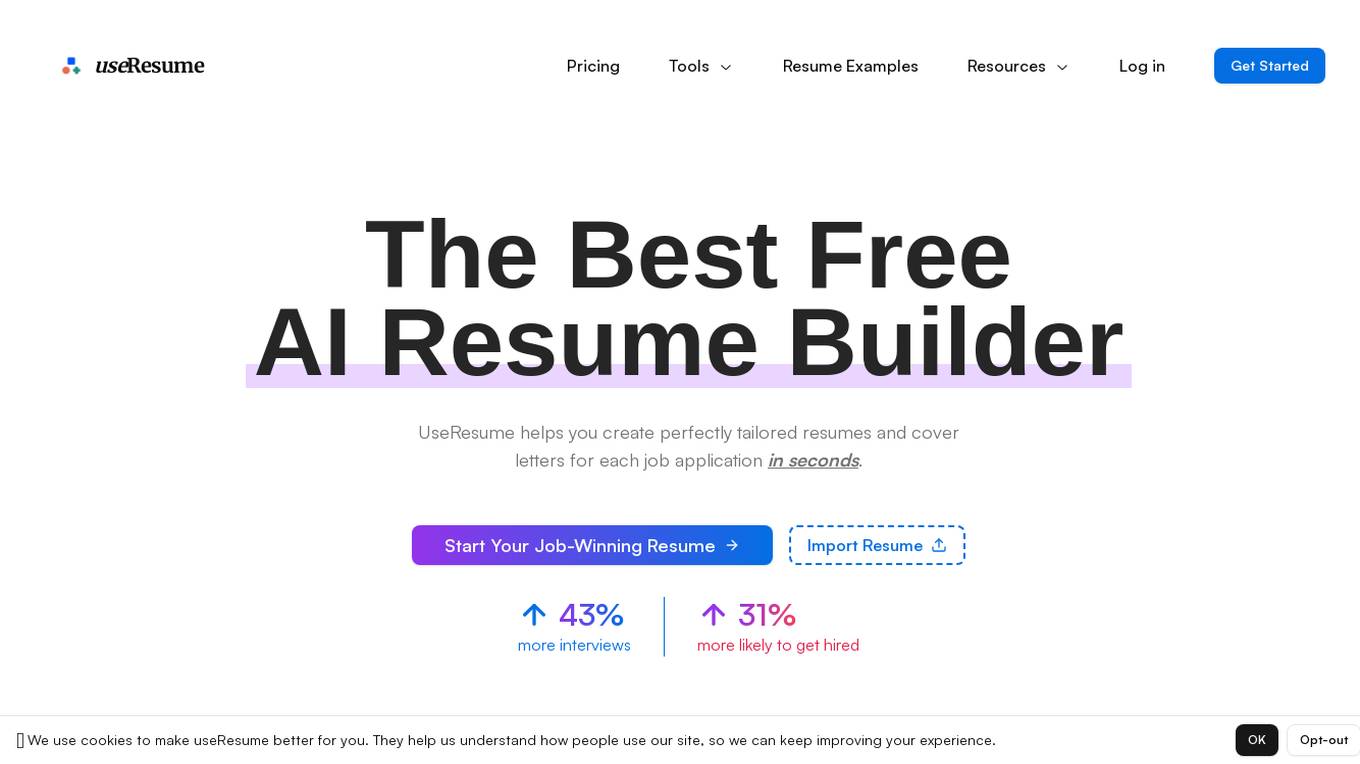
useResume
useResume is a free AI resume and cover letter builder that leverages state-of-the-art AI technology to help users create tailored resumes and cover letters for job applications in seconds. The platform offers optimized resumes, beautiful templates, version control, interview preparation, and industry-specific content to enhance job application success.
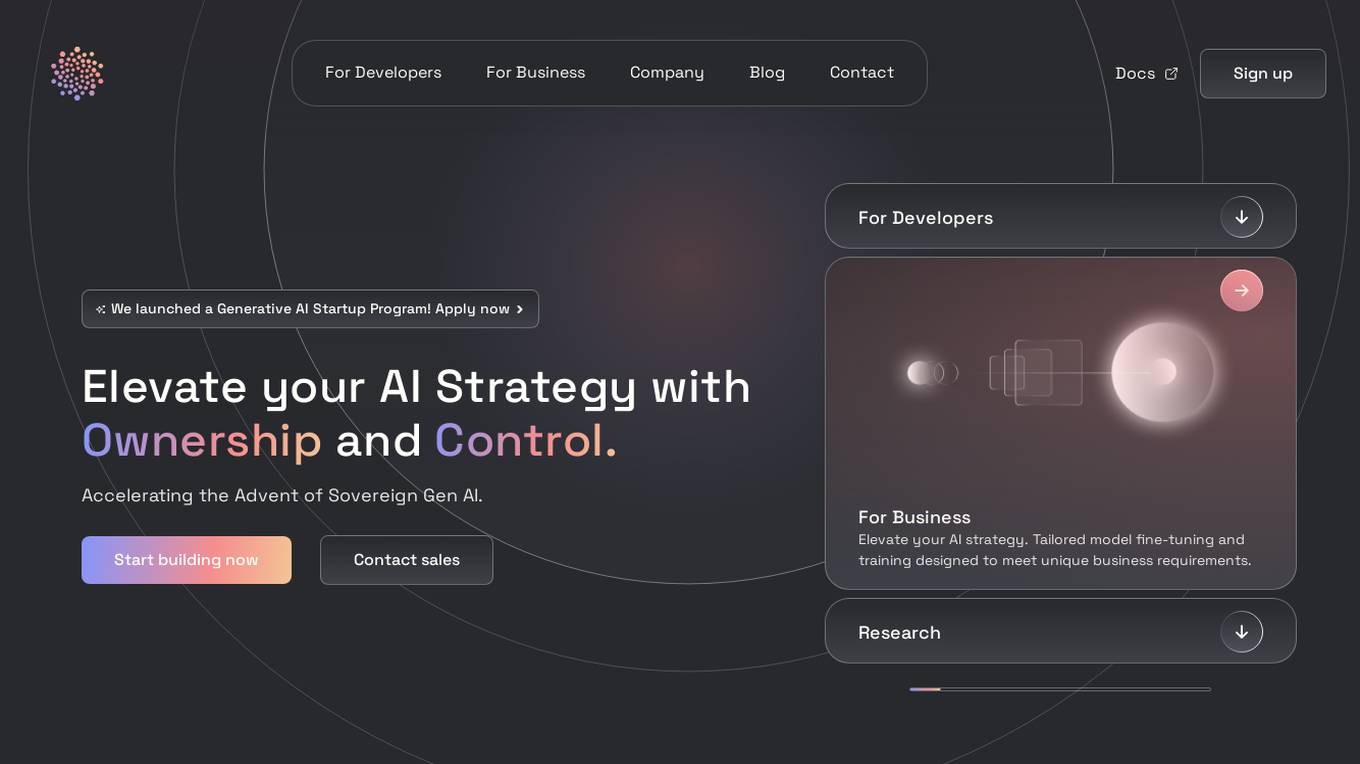
Prem AI
Prem is an AI platform that empowers developers and businesses to build and fine-tune generative AI models with ease. It offers a user-friendly development platform for developers to create AI solutions effortlessly. For businesses, Prem provides tailored model fine-tuning and training to meet unique requirements, ensuring data sovereignty and ownership. Trusted by global companies, Prem accelerates the advent of sovereign generative AI by simplifying complex AI tasks and enabling full control over intellectual capital. With a suite of foundational open-source SLMs, Prem supercharges business applications with cutting-edge research and customization options.

Basel
Basel is an AI career companion that revolutionizes the job application process by enabling users to start conversations instead of traditional applications. It facilitates meaningful career opportunities and smarter recruiting by generating interviews on demand. Basel is packed with features to assist in connecting recruiters to candidates, offering adaptive and personalized interactions. Users have full control over the information Basel learns and recollects about their career profile. The application allows users to create shareable links for instant access by recruiters and employers, enabling Basel to represent them effectively. Basel also provides features for logging daily progress, tracking wins, and offering actionable suggestions to stay organized and productive.
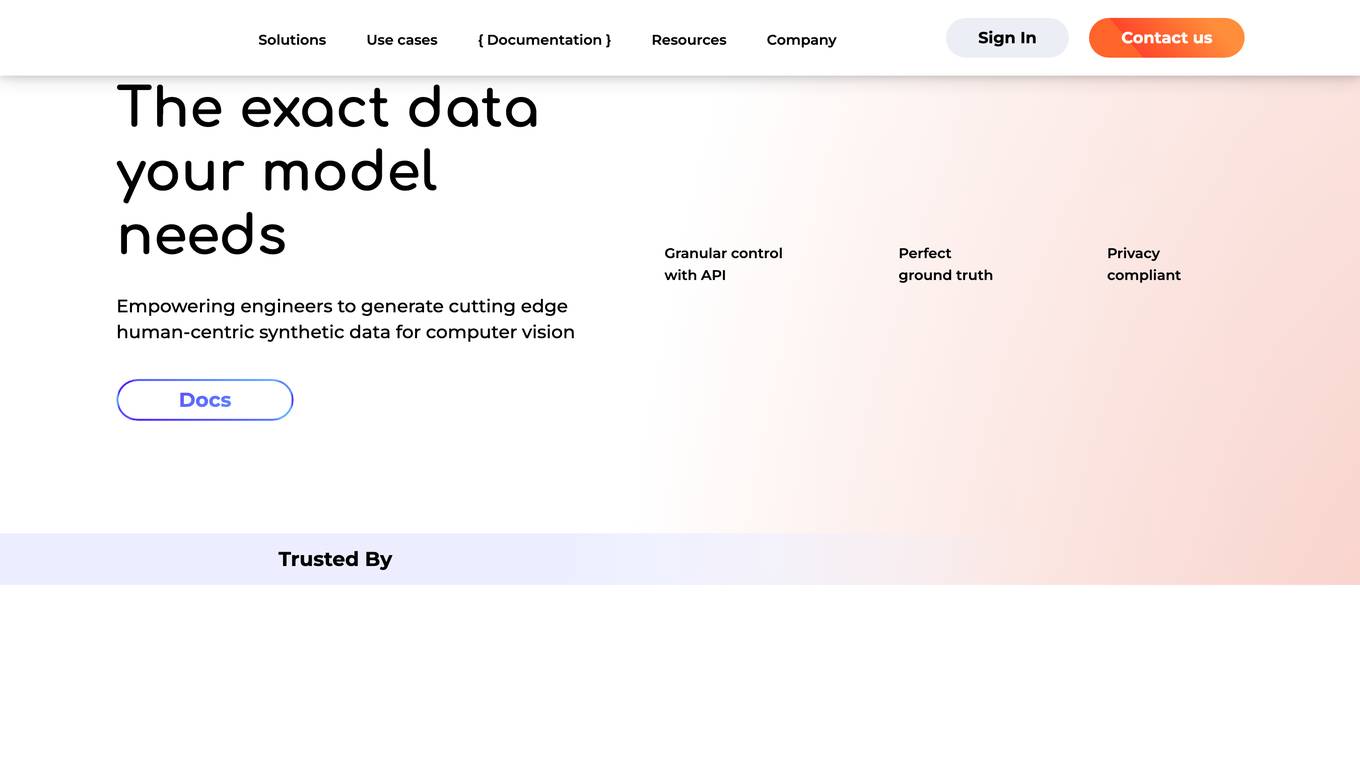
Datagen
Datagen is a platform that provides synthetic data for computer vision. Synthetic data is artificially generated data that can be used to train machine learning models. Datagen's data is generated using a variety of techniques, including 3D modeling, computer graphics, and machine learning. The company's data is used by a variety of industries, including automotive, security, smart office, fitness, cosmetics, and facial applications.
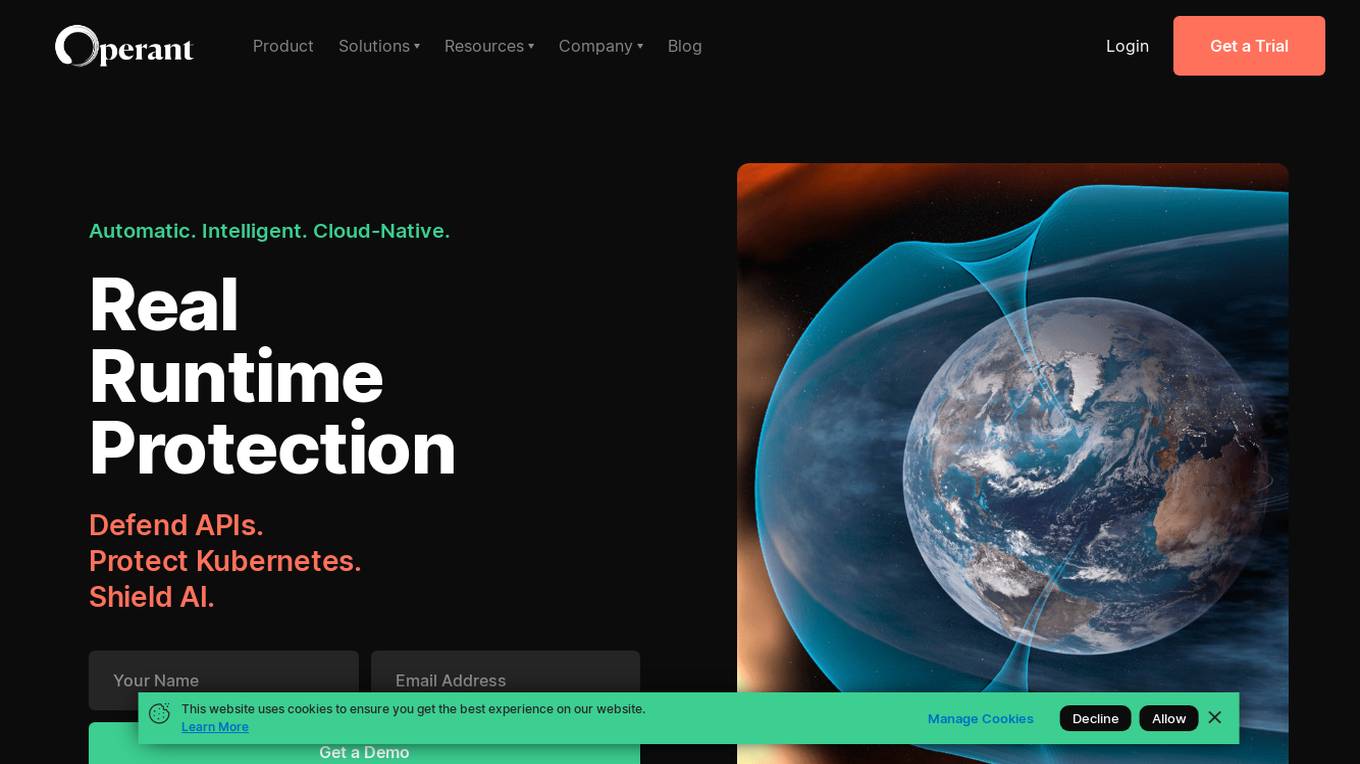
Operant
Operant is a cloud-native runtime protection platform that offers instant visibility and control from infrastructure to APIs. It provides AI security shield for applications, API threat protection, Kubernetes security, automatic microsegmentation, and DevSecOps solutions. Operant helps defend APIs, protect Kubernetes, and shield AI applications by detecting and blocking various attacks in real-time. It simplifies security for cloud-native environments with zero instrumentation, application code changes, or integrations.

Mendable
Mendable is an AI-powered search tool that helps businesses answer customer and employee questions by training a secure AI on their technical resources. It offers a variety of features such as answer correction, custom prompt edits, and model creativity control, allowing businesses to customize the AI to fit their specific needs. Mendable also provides enterprise-grade security features such as RBAC, SSO, and BYOK, ensuring the security and privacy of sensitive data.
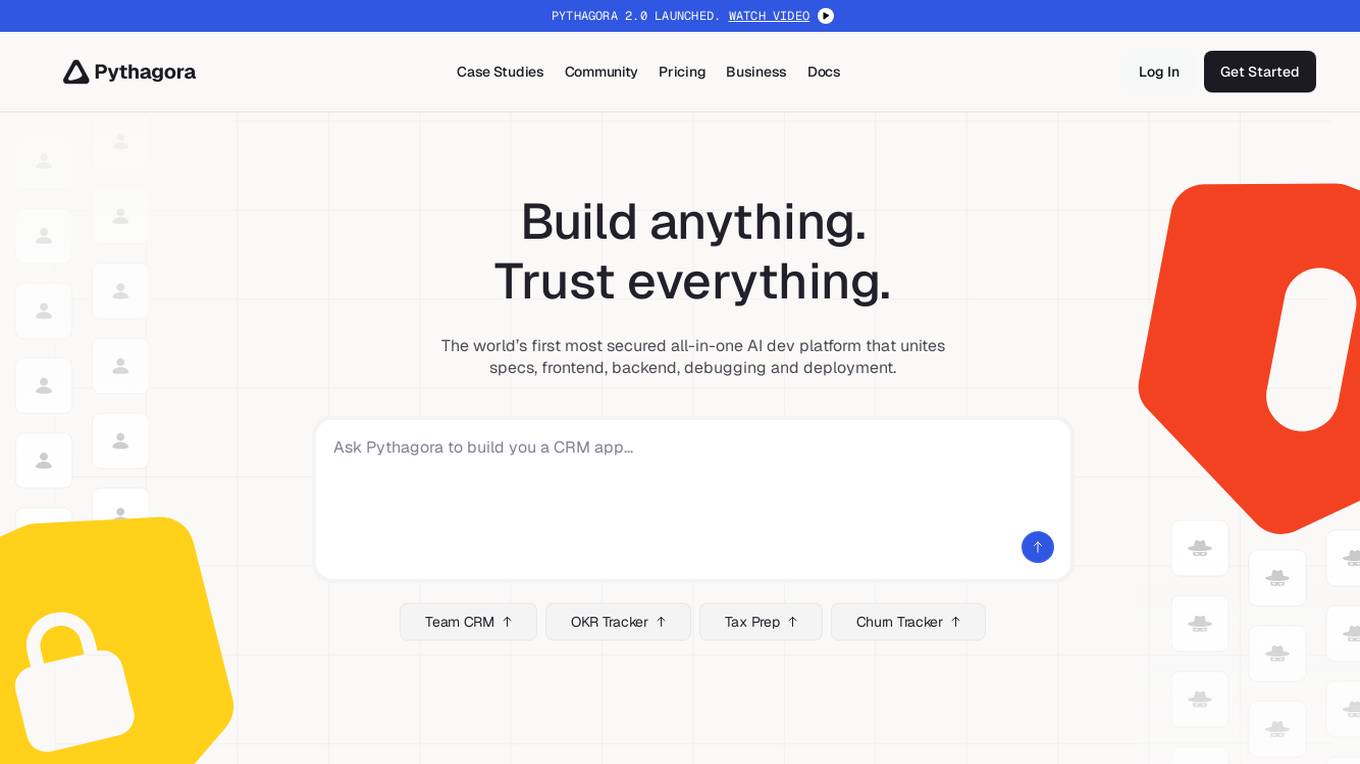
Pythagora
Pythagora is the world's first all-in-one AI development platform that offers a secure and comprehensive solution for building web applications. It combines frontend, backend, debugging, and deployment features in a single platform, enabling users to create apps without heavy coding requirements. Pythagora is powered by specialized AI agents and top-tier language models from OpenAI and Anthropic, providing users with tools for planning, writing, testing, and deploying full-stack web apps. The platform is designed to streamline the development process, offering enterprise-grade security, role-based authentication, and transparent control over projects.
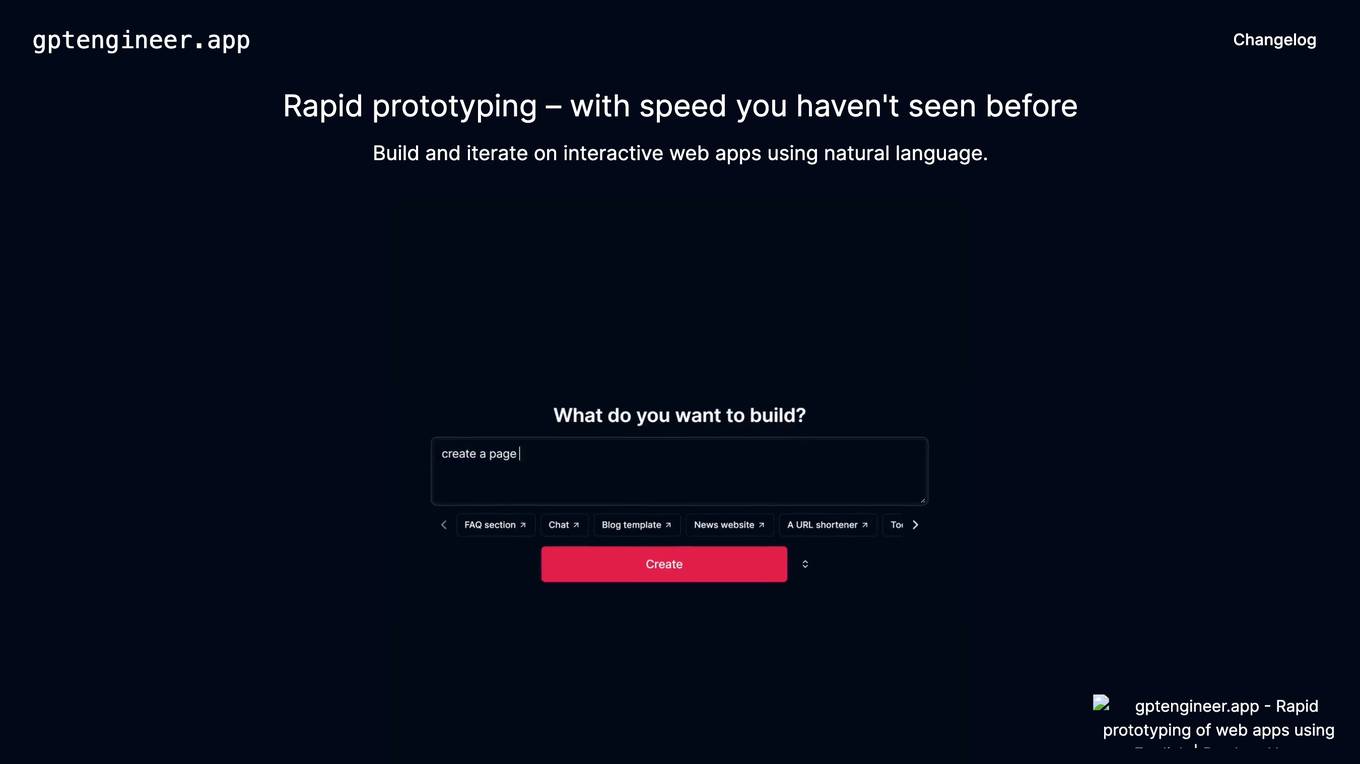
GPT Engineer
GPT Engineer is an AI tool designed to help users build web applications 10x faster by chatting with AI. Users can sync their projects with GitHub and deploy them with a single click. The tool offers features like displaying top stories from Hacker News, creating landing pages for startups, tracking crypto portfolios, managing startup operations, and building front-end with React, Tailwind & Vite. GPT Engineer is currently in beta and aims to streamline the web development process for users.

Vana
Vana is an application that allows you to create a mini "you" - think of it like a "you" digital persona - that you can use in different applications in a way that puts your privacy and control first. You should always be in control of what you create. That's why Vana starts with creating a safe and secure space for you to play and be in control. The next step is to set up your "digital persona" with a little help from AI. After that, you can chat to it, improve it, share it with friends, and play with it in various apps.

BrainAccess
BrainAccess is an AI-enabled electroencephalography (EEG) and hyperscanning solution designed for research, brain-computer interface development, neuromarketing, and beyond. It offers dry-contact EEG electrodes, wireless connectivity, and a compact form factor for portable applications. The software supports Lab Streaming Layer (LSL) protocol, enabling synchronized EEG measurements with stimulus onsets or sensor data. BrainAccess also facilitates hyperscanning, allowing synchronized brain activity measurements from multiple individuals. The user-friendly software development kit supports multiple programming languages for device control and EEG application development.

CodeConductor
CodeConductor is a no-code AI software development platform that empowers users to build scalable, high-quality applications without the need for extensive coding. The platform streamlines the app development process, allowing users to focus on innovation and customization. With features like accelerated app development, complete customization control, intelligent feature suggestions, dynamic data modeling, and seamless CI/CD & auto-scaled hosting, CodeConductor offers a user-friendly and efficient solution for creating web and mobile applications. The platform also provides enterprise-grade security, robust deployment options, and transparent code history tracking.
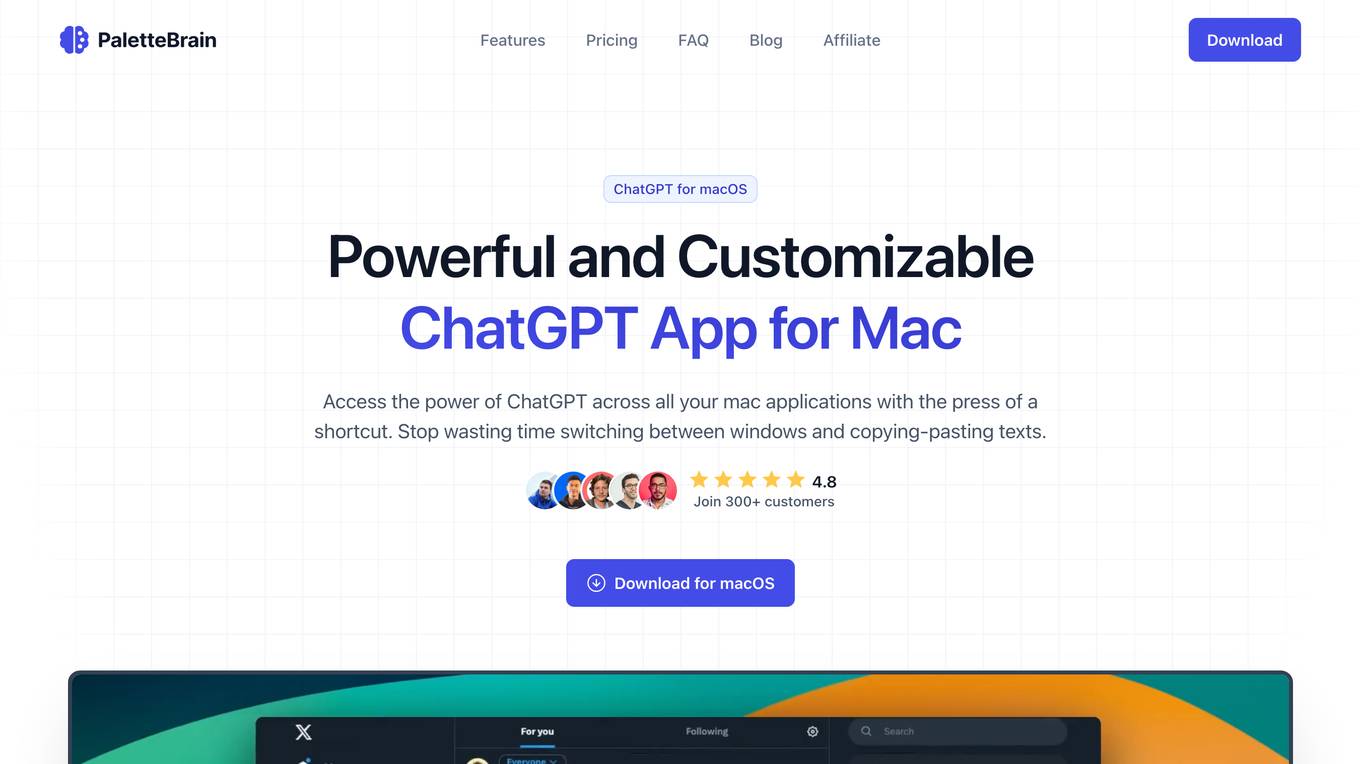
PaletteBrain
PaletteBrain is a powerful and customizable ChatGPT application for Mac users. It allows users to access the capabilities of ChatGPT across all Mac applications with the press of a shortcut. By automating tasks, reducing manual inputs, and providing customizable templates, PaletteBrain enhances productivity and streamlines workflow. Users can create and use custom ChatGPT templates, set up shortcuts, and have full control over preferences. The application is designed to save time, improve efficiency, and provide quick access to ChatGPT functionalities.
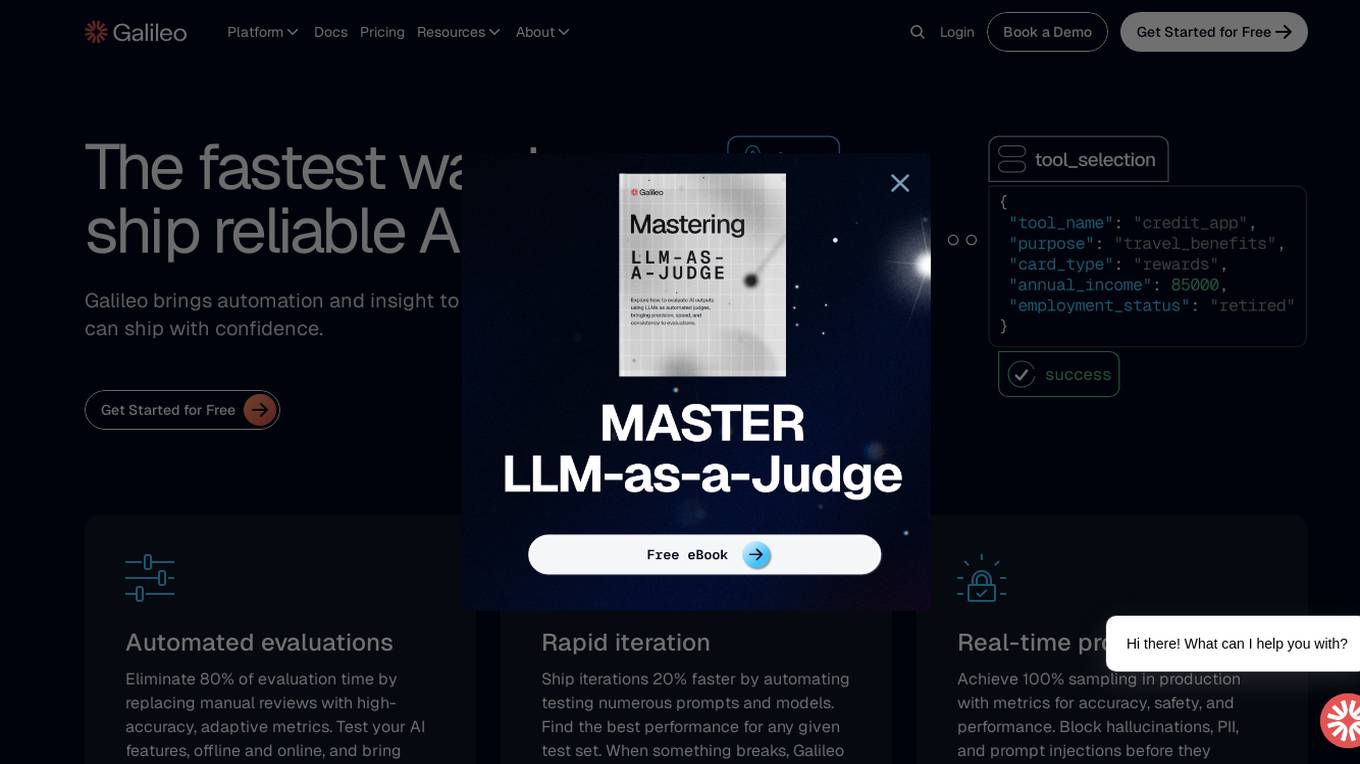
Galileo AI
Galileo AI is a platform that offers automated evaluations for AI applications, bringing automation and insight to AI evaluations to ensure reliable and confident shipping. It helps in eliminating 80% of evaluation time by replacing manual reviews with high-accuracy metrics, enabling rapid iteration, achieving real-time protection, and providing end-to-end visibility into agent completions. Galileo also allows developers to take control of AI complexity, de-risk AI in production, and deploy AI applications flexibly across different environments. The platform is trusted by enterprises and loved by developers for its accuracy, low-latency, and ability to run on L4 GPUs.
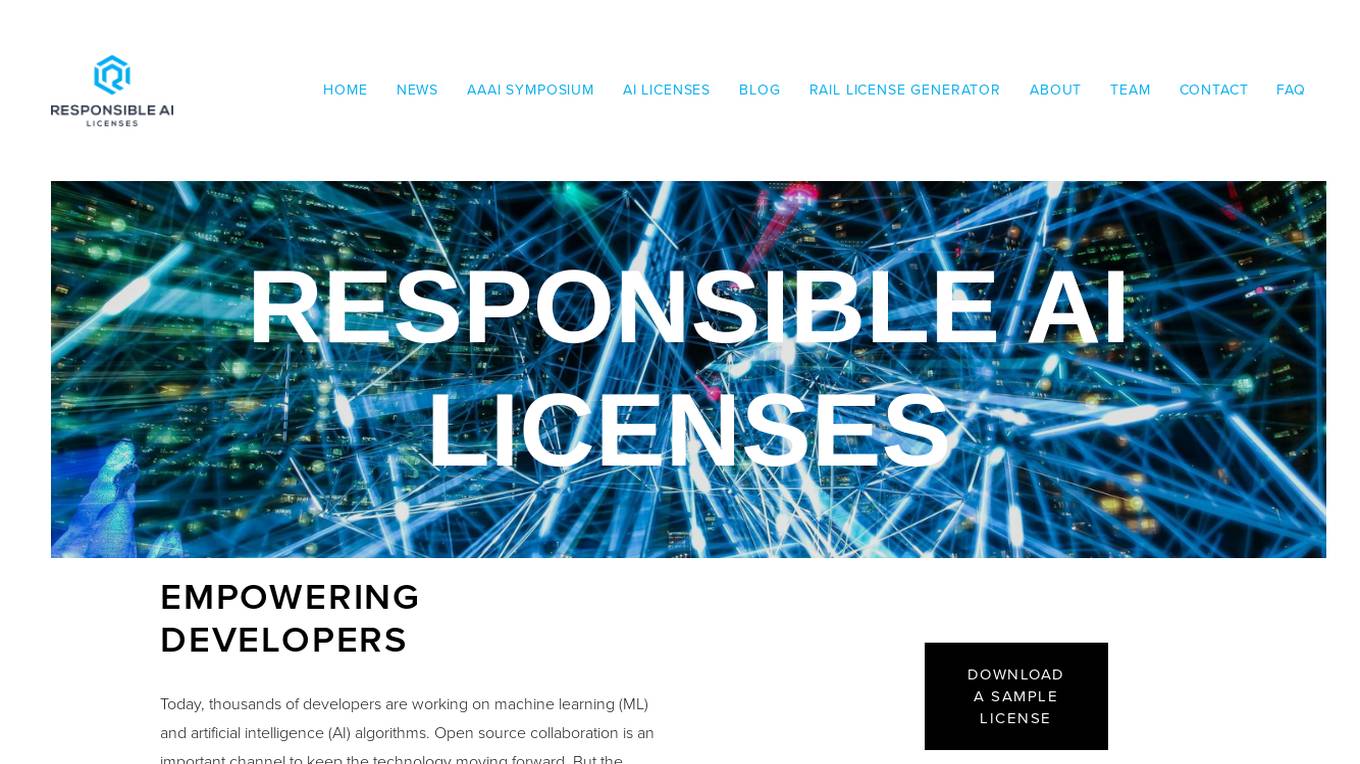
Responsible AI Licenses (RAIL)
Responsible AI Licenses (RAIL) is an initiative that empowers developers to restrict the use of their AI technology to prevent irresponsible and harmful applications. They provide licenses with behavioral-use clauses to control specific use-cases and prevent misuse of AI artifacts. The organization aims to standardize RAIL Licenses, develop collaboration tools, and educate developers on responsible AI practices.
0 - Open Source AI Tools
20 - OpenAI Gpts

Raspberry Pi Pico Master
Expert in MicroPython, C, and C++ for Raspberry Pi Pico and RP2040 and other microcontroller oriented applications.
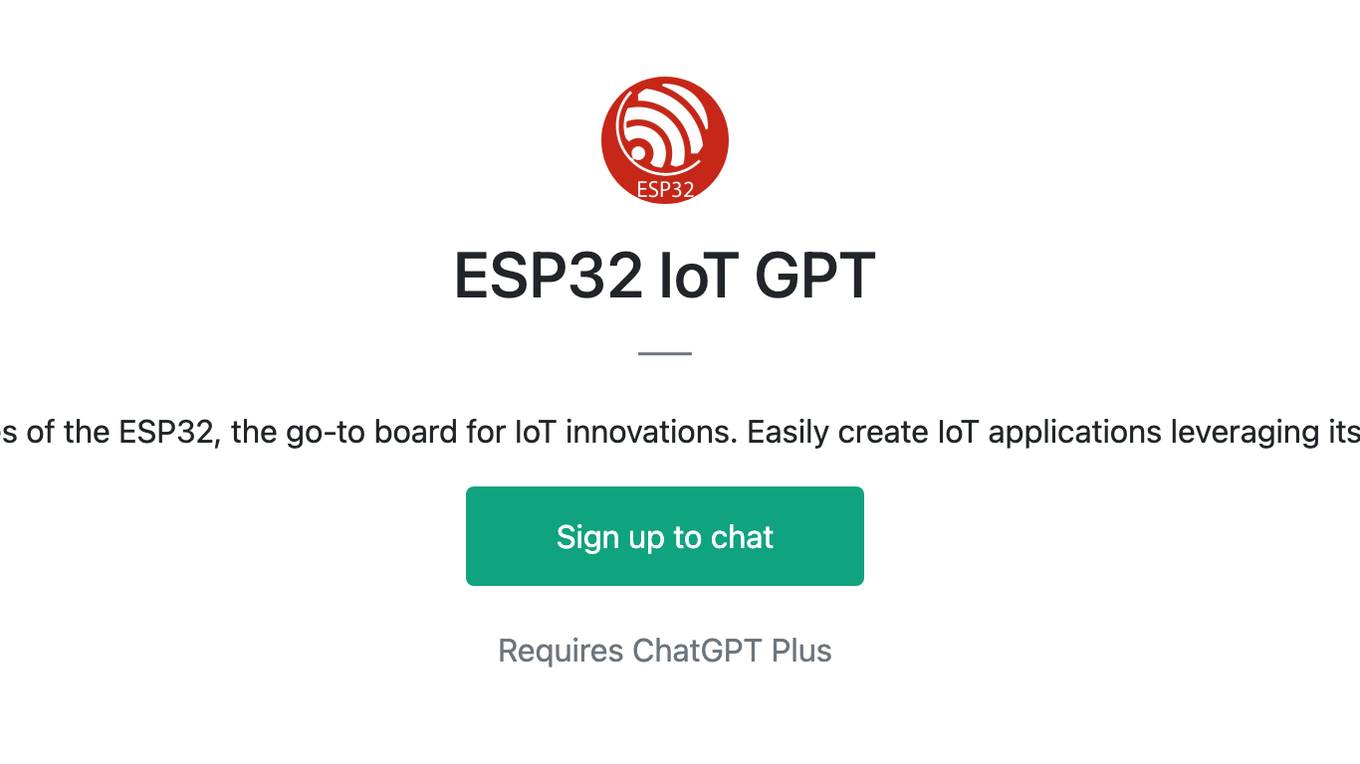
ESP32 IoT GPT
Discover the versatile capabilities of the ESP32, the go-to board for IoT innovations. Easily create IoT applications leveraging its Wi-Fi and BLE functionalities.

Polymer Engineering Advisor
Guides polymer selection and application in manufacturing processes.
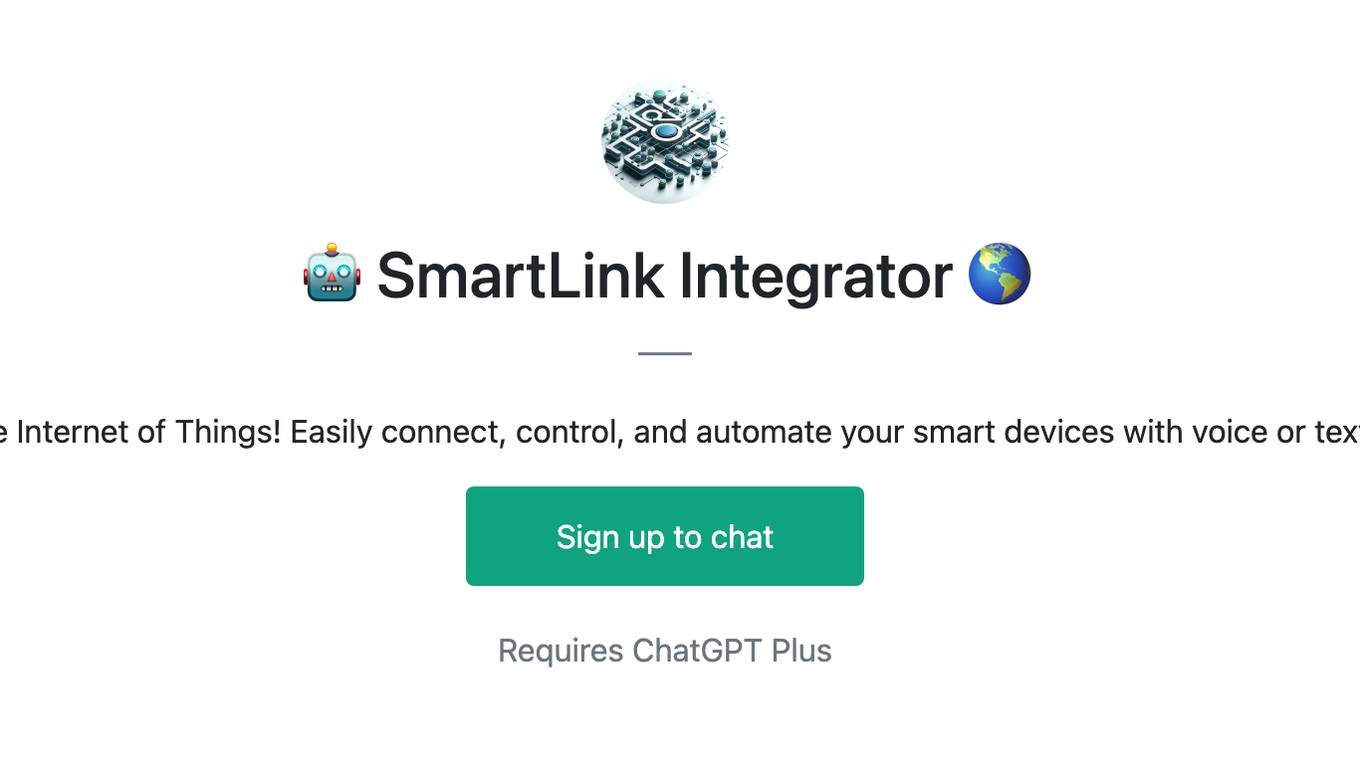
🤖 SmartLink Integrator 🌎
Your AI bridge to the Internet of Things! Easily connect, control, and automate your smart devices with voice or text commands. 🏠💎
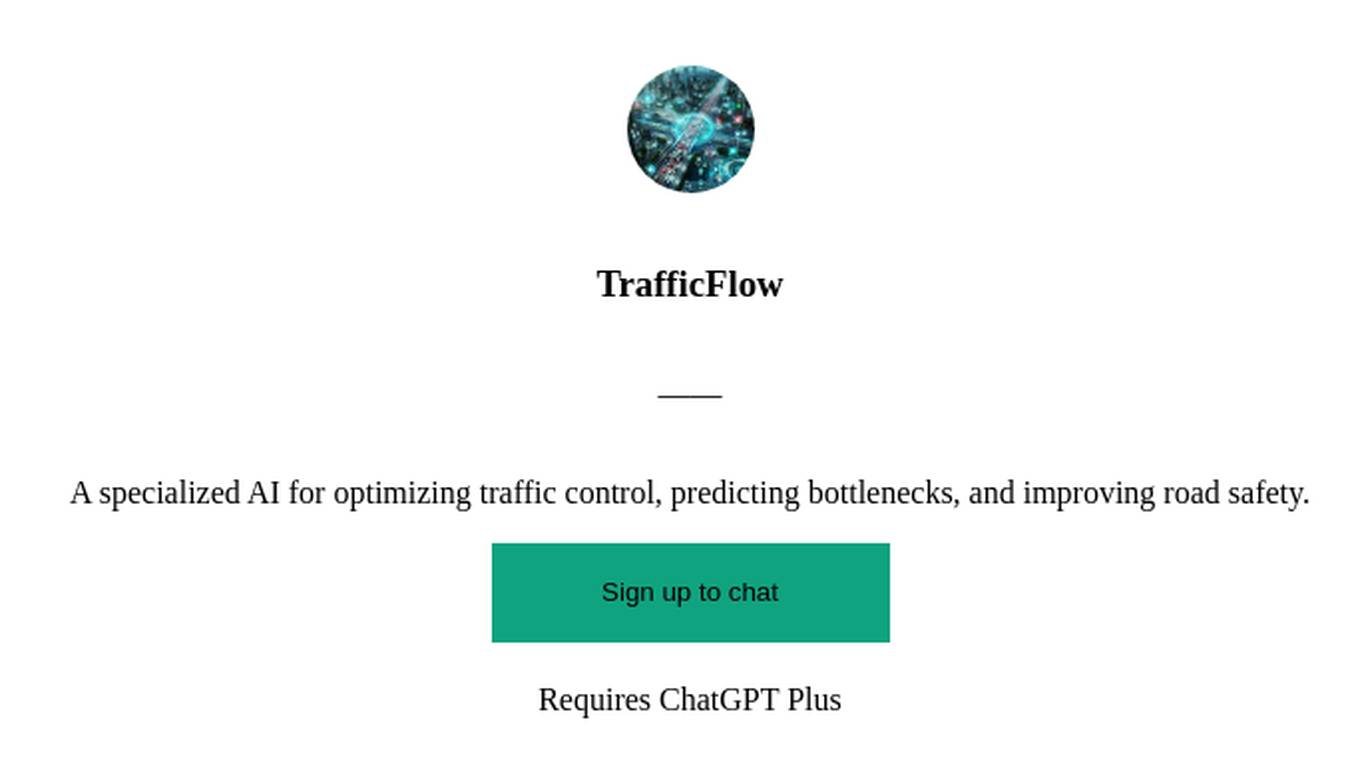
TrafficFlow
A specialized AI for optimizing traffic control, predicting bottlenecks, and improving road safety.

Sim-Low
Meal planner with 1)Calories Control 2)Family/Personal Plan 3)Nutritional Summaries 4)Shopping Lists

Addiction Assistant
A mentor for those with struggling with control over their substance use, offering guidance, resources, and support for sobriety. In case of relapse, it provides practical steps and resources, including web links, phone numbers, and emails.
